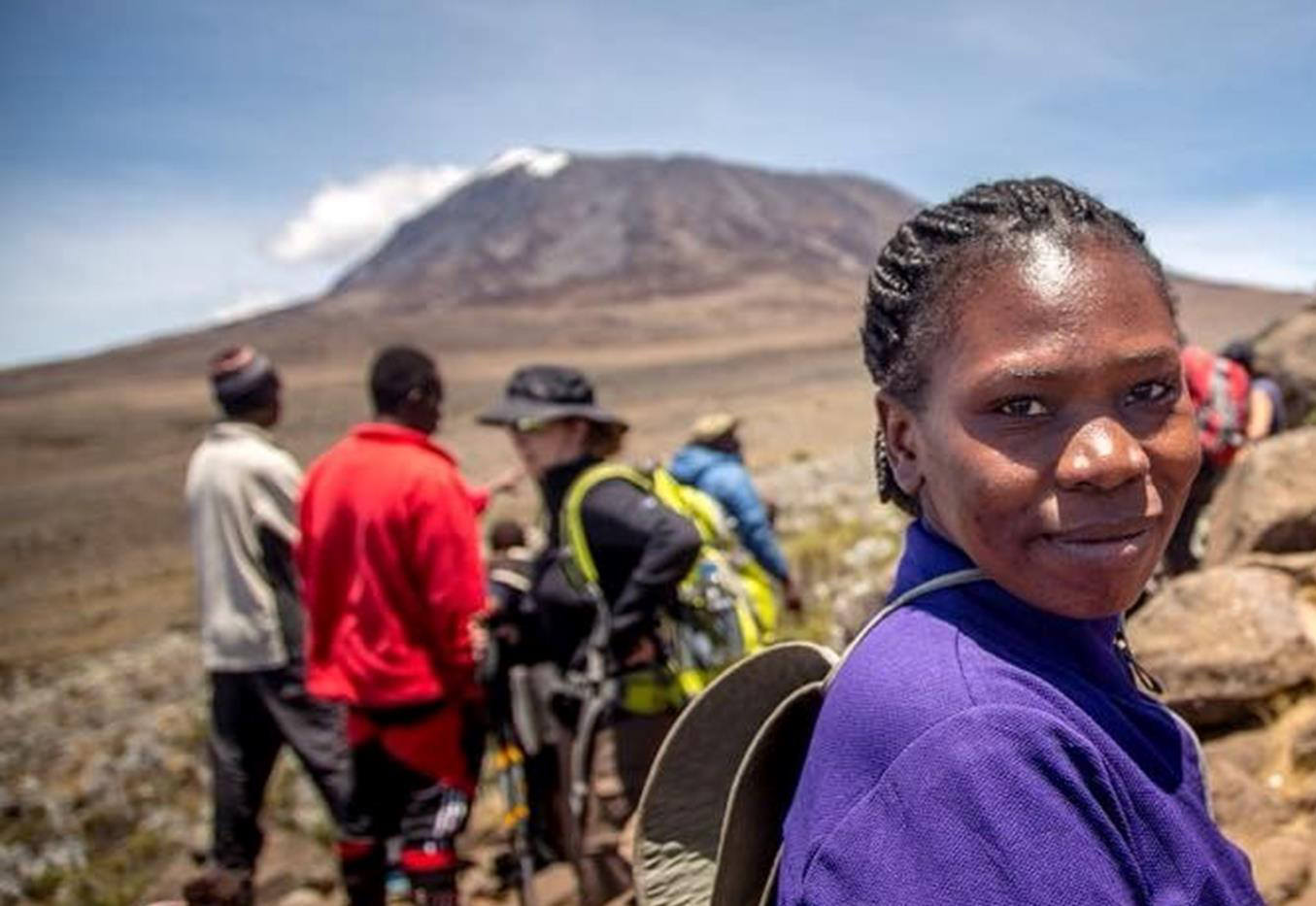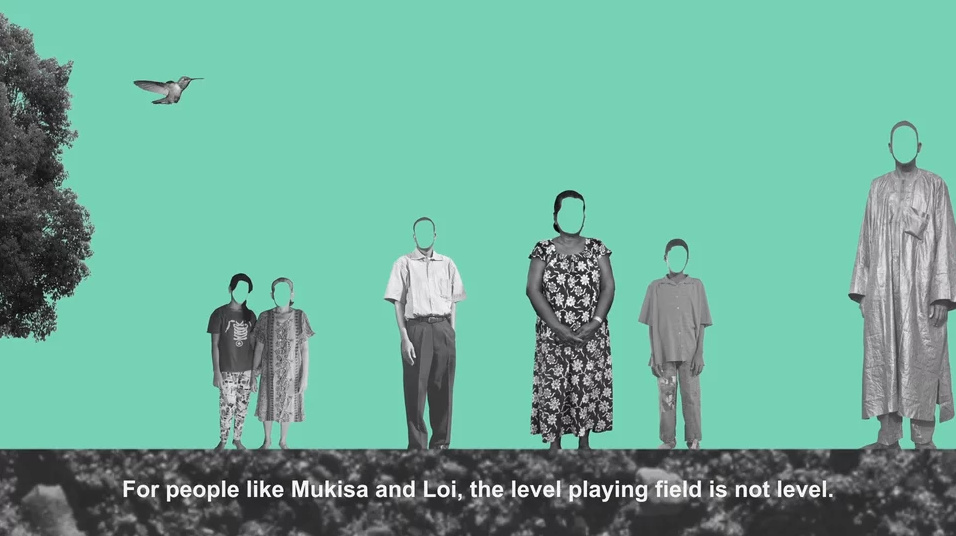Select indicator
 Capacity of Civil Society Organisations to influence
Capacity of Civil Society Organisations to influence
Advocating human rights requires considerable knowledge, skills and courage. In an increasing number of countries, activists are being prosecuted or threatened if their opinions and activities do not match the agenda of those who hold power. For this reason, active and political support for civil society organisations is now more important than ever.
Civil society organisations receive support to fulfil their political role
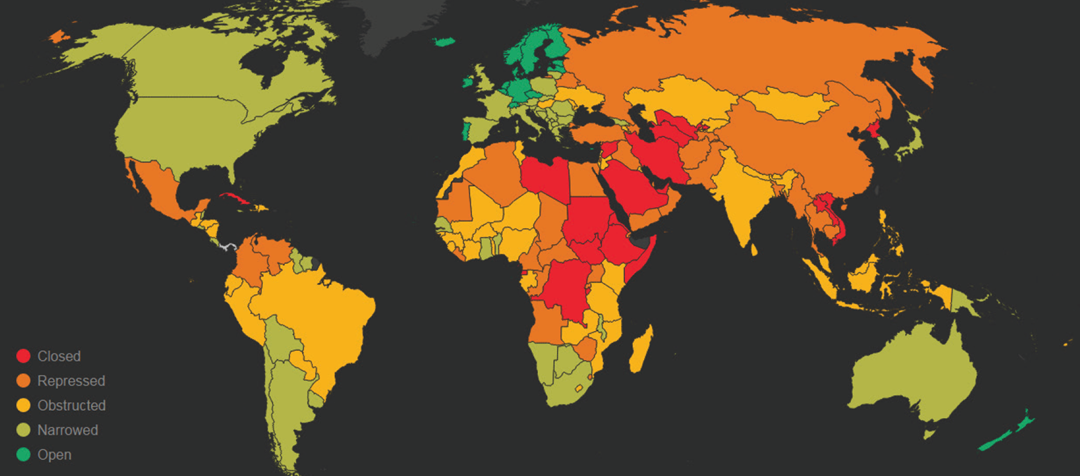
Worldwide, civil society is under pressure. In many countries, stricter legislation and regulations are being adopted to curb the work of NGOs, among other organisations. The Netherlands supports CIVICUS, the international alliance of CSOs, in resisting such developments and in generating greater attention for the important role fulfilled by CSOs. CIVICUS has, for example, developed the CIVICUS monitor to research and monitor the position of CSOs per country. This monitor shows that organisations in 195 countries are currently experiencing minor to severe restrictions.
What does this indicator mean?
The Dialogue & Dissent policy framework reaches more than 1,335 CSOs, including the alliance organisations and their partner organisations in LLMICs. As a result, the Dialogue and Dissent partners reach out to many different communities and stakeholders in more than 65 countries. The types of CSOs that receive support range from larger international NGOs with local offices, such as Oxfam Novib and Action Aid, to environmental activist organisations, trade unions, small organisations of marginalised groups and global networks. In general, the partnerships each focus on their own theme, such as water, food security, sexual and reproductive health and rights or gender equality. In some countries, they also join forces to combat the restrictions imposed on CSOs in many countries.
What does the result mean?
The Netherlands invests in civil society organisations in developing countries to build their capacity for lobbying and advocacy. Through the Dialogue & Dissent policy framework, CSOs receive not only financial support but also in terms of diplomacy, technical support and access to an extensive professional network. The policy framework consists of 25 Strategic partnerships with CSOs in the Netherlands and abroad, each of which focuses on specific thematic issues in multiple countries. In all of these partnerships, the strengthening of Southern organisations is a priority, so that they are in the best possible position to hold private companies, the government and other groups accountable in terms of sustainable and inclusive development.
 Capacity of Civil Society Organisations to influence
Capacity of Civil Society Organisations to influence
Advocating human rights requires considerable knowledge, skills and courage. In an increasing number of countries, activists are being prosecuted or threatened if their opinions and activities do not match the agenda of those who hold power. For this reason, active and political support for civil society organisations is now more important than ever.
CSOs with improved capacity for lobbying and advocacy
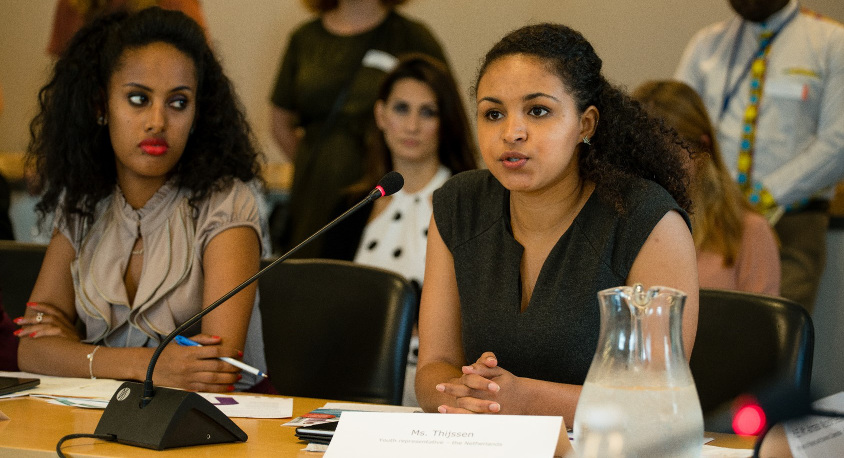
"So you, you're going to the UN?" toolkit for multilateral advocacy on sexual and reproductive health and rights (photo by Right Here, Right Now)
What does this indicator mean?
More than 770 CSOs have increased their lobbying and advocacy capacity as a result of the Dialogue & Dissent policy framework. Capacity building is achieved through many different activities, such as intensive co-operation between organisations with different capacities, training, as well as through tool kits on lobbying and advocacy strategies. The Right Here, Right Now alliance, for example, developed the 'So, you’re going to the UN!’ toolkit to teach young people worldwide how to influence decision making on sexual and reproductive health and rights in multilateral institutions.
Note: this indicator under-reports the actual capacity development because, in this first year of the Dialogue & Dissent policy framework, many organisations have only measured the starting capacity of their partners and not yet the relative increase.
What does the result mean?
A key element of the Dutch support to CSOs is the focus on capacity development for lobbying and advocacy. Influencing stakeholders to achieve more inclusive and sustainable development requires different strategies, ranging from co-operative strategies like promoting scientific evidence to convince policy makers, to more confrontational strategies such as marches or demonstrations aimed at the general public. Building the capacity of CSOs to use the strategies that are suitable for their cause increases their effectiveness.
 Capacity of Civil Society Organisations to influence
Capacity of Civil Society Organisations to influence
Advocating human rights requires considerable knowledge, skills and courage. In an increasing number of countries, activists are being prosecuted or threatened if their opinions and activities do not match the agenda of those who hold power. For this reason, active and political support for civil society organisations is now more important than ever.
Advocacy initiatives carried out by civil society organisations
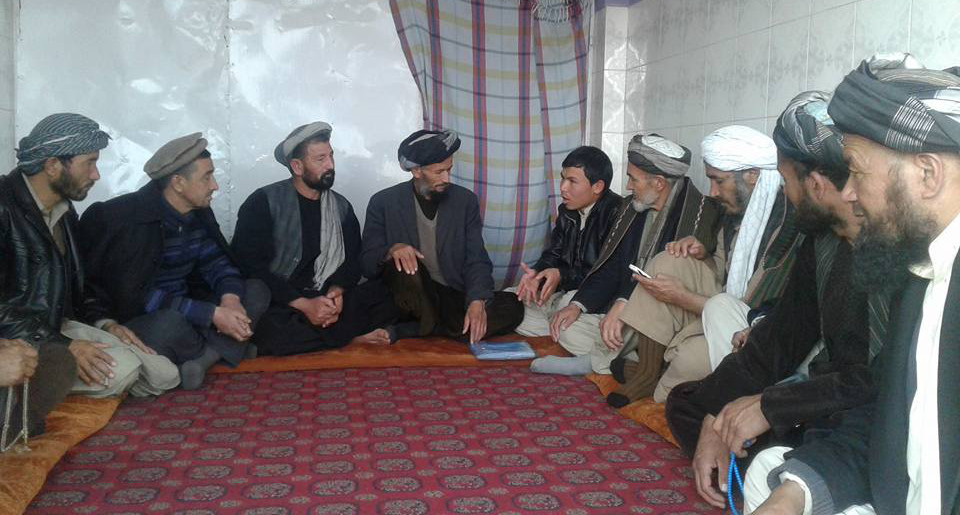
Conversation with religious and traditional leaders in an Afghan community to gain support on women-led advocacy groups (Qoriq village in Charkent district, February 2017)
What does this indicator mean?
In 2016, 1,464 advocacy efforts were carried out as part of the Dialogue & Dissent policy framework. These efforts took the form of public awareness campaigns, informal dialogues with opinion leaders, protests or community platforms to report public opinion on specific issues. The Health Systems Advocacy partnership, for example, facilitated local communities in Kenya to speak out about their experiences of community health centres. This has resulted in recommendations on how to improve maternal healthcare services, the availability of doctors and medicines, and the treatment of patients. In Afghanistan, the Every Voice Counts alliance established a programme to inform men – including religious and traditional leaders – about women's freedom of expression. As a result of these discussions, these men now support women's interest groups.
What does the result mean?
With a strengthened capacity for lobbying and advocacy, CSOs are in a better position to inform citizens on important issues, such as the effects of new laws, investments or other initiatives. Mainly people living in remote areas and marginalised groups are often (unintentionally) affected by the negative consequences of decision making. They often do not know what political developments are taking place or how to influence them. CSOs can help them in this, by informing them, representing their interests and supporting them in defending their rights and interests against the government, private businesses and the community. This does not always concern formal decision making, but may also relate to prejudices that exist in relation to certain groups, such as the elderly, people with disabilities or gay men.
 CSOs engage in transforming decision making and societal norms
CSOs engage in transforming decision making and societal norms
In order to achieve inclusive development, it is important that people have the opportunity to make their concerns heard by decision-makers. CSOs can play an important role in this, by bringing citizens' rights and concerns to the attention of governments, private businesses and communities. The Netherlands supports CSOs in becoming actively and meaningfully involved in decision-making processes, to make sure that decisions lead to inclusive and sustainable development.
Proposals for better laws, policies and norms are on the agenda of decision makers
#Women2kilimanjaro advocacy campaign to raise support for laws reforms to allow women to own land legally
What does this indicator mean?
In 2016, at least 178 issues were placed on the agenda of relevant decision makers. CSOs contributed to agenda-setting informally, by creating greater awareness among community leaders, who then discuss the issues with their community members. In more formal settings, CSOs lobbied for a specific issue to be included in a meeting of stakeholders. With the support of the
Fair, Green and Global alliance, a small group of women was able to increase the attention of African governments to land rights. This involved 29 women from 22 African countries climbing Mount Kilimanjaro in Tanzania to demand implementation of a new system that would allow women to own land.
What does the result mean?
In order to influence laws, policies and norms, it is important that opinion leaders and decision makers are aware of the concerns of the people involved and that they are willing to discuss these concerns. In many cases, the people that draft laws, policies or set the norm for behaviour are not fully aware of the consequences for all people involved. There are also cases in which policies are designed to serve the interests of the most dominant groups, resulting in structural disadvantage for groups that are less visible or have less opportunity to speak out. Through the Dialogue & Dissent partnerships, many people spoke out for the first time about their concerns and rights, and set the agenda for decision makers.
 CSOs engage in transforming decision making and societal norms
CSOs engage in transforming decision making and societal norms
In order to achieve inclusive development, it is important that people have the opportunity to make their concerns heard by decision-makers. CSOs can play an important role in this, by bringing citizens' rights and concerns to the attention of governments, private businesses and communities. The Netherlands supports CSOs in becoming actively and meaningfully involved in decision-making processes, to make sure that decisions lead to inclusive and sustainable development.
Inclusive policy-making processes

Inclusive dialogue on the development of landscapes in Madagascar
What does this indicator mean?
The Dialogue & Dissent partnerships have been successful in creating space for CSOs to engage in more than 99 decision-making processes on many different themes. In Madagascar, for example, the Shared Resources, Joint Solutions alliance (SRJS), stepped in to facilitate an inclusive dialogue on the balance of nature conservation and economic development in the Ampasindava peninsula in North West Madagascar. Madagascar is well known for its extraordinary nature and wildlife, but this is threatened by the extraction of natural resources, such as oil. The SRJS alliance brought together local farmers, tourism operators, government officials and representatives of mining companies to meet each other for the first time and discuss how the region could develop economically, without destroying the natural ecosystems.
What does the result mean?
Besides agenda-setting, which ensures that the right topics are discussed, it is also important that the right people have a seat at the table to influence the conversation. Inclusive policy-making processes ensure that all people affected by a decision have the opportunity to voice their concerns and influence the outcomes. When more people are consulted on an issue, the subsequent policies, practices and behaviour are likely to be more inclusive and sustainable.
 More inclusive and sustainable laws, policies and practices
More inclusive and sustainable laws, policies and practices
The Netherlands supports CSOs in the influencing of laws, policies and norms to make them more inclusive and sustainable. CSOs are also supported in holding governments, private sector actors and communities accountable for proper implementation of those laws, policies and norms, ultimately leading to inclusive and sustainable practices.
Policies, laws and norms successfully influenced
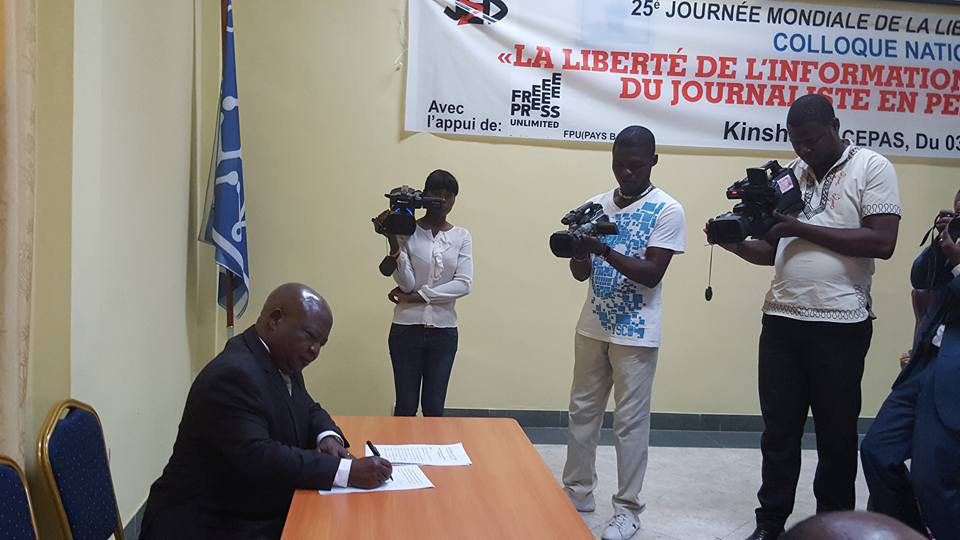
Impartiality, trustworthiness and accuracy are essential for journalists to contribute to a open and inclusive debate in society. The Congolese charter, containing 17 basic principles on journalism, is designed to reform the laws and policies relating to the press in Congo and was signed by many national and provincial stakeholders.
What does this indicator mean?
In 2016, at least 106 laws, policies and norms were successfully influenced. This has contributed to new laws, policies and norms, as well as the blocking of harmful ones and the improvement of existing ones, for more inclusive and sustainable development. The Citizens Agency consortium, for example, was successful in persuading 130 flower farms in Kenya to adopt a comprehensive, sector-wide, anti-sexual harassment policy to improve the working conditions of women workers. The workplace policy was adopted following a constructive dialogue involving all key actors; from employers, trade unions, workers and civil society organisations to government representatives. In 2016, the No News Is Bad News partnership achieved a significant result in the Democratic Republic of Congo, where journalists are often confronted with violence and censorship. As a result of the partnership's advocacy efforts, the official Supervisory Council (CSAC) and several Congolese journalists' organisations signed a charter containing 17 principles of journalism, such as impartiality, accuracy and trustworthiness.
What does the result mean?
Laws, policies and norms are an important cornerstone for sustainable and inclusive development, because they are the formal or informal rules of engagement to which people can refer when they experience exclusion or other forms of suffering. For example, in countries in which the constitution states that, in principle, all people have equal rights, women have a stronger base for their advocacy than women in countries where equal rights are not made explicit in laws or policies. Influencing laws, policies and norms is generally, however, a very long and diffuse process of advocacy efforts, to which typically many different stakeholders contribute. The results reported for 2016 can partly be explained by the long-term investments that many of the partners have made in their respective focus areas. Since social change requires long-term investment, it is important that the Netherlands continues to support civil society organisations in bringing people together and speaking out for their rights and concerns.
 More inclusive and sustainable laws, policies and practices
More inclusive and sustainable laws, policies and practices
The Netherlands supports CSOs in the influencing of laws, policies and norms to make them more inclusive and sustainable. CSOs are also supported in holding governments, private sector actors and communities accountable for proper implementation of those laws, policies and norms, ultimately leading to inclusive and sustainable practices.
More inclusive and sustainable practices
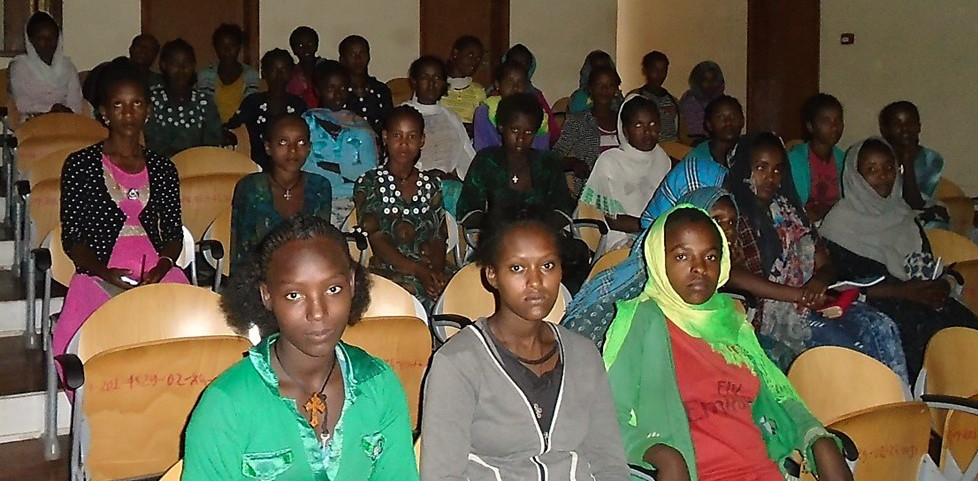
Girls in Ethiopia who were protected from child marriage
What does this indicator mean?
The Dialogue & Dissent partnerships have contributed to changes in at least 27 practices of governments, private companies or communities, in alignment with laws, policies and norms that promote sustainability and inclusiveness. This was achieved through monitoring and reporting, as well as other forms of advocacy. CSOs also offered training to officials to enable more coherent implementation of existing laws and regulations. In Ethiopia, for example, the central government has forbidden child marriage, but many girls still marry before the age of 18. The Girls Advocacy alliance supported the Anti-Harmful Traditional Practices Committee to fully implement the law and as a result supported the prevention of 96 child marriages in 2016.
What does the result mean?
To make sure that laws, policies and norms do indeed promote greater equality and inclusivity, it is important that they are well implemented. CSOs influence implementation by creating a strong demand for accountability and by developing innovative strategies to ensure that laws, policies and norms are upheld. When a country ratifies a certain treaty, for example, CSOs can engage in research or survey citizens to verify the extent to which the treaty is being upheld. Based on their findings, CSOs can hold governments, private companies or communities accountable for their practices and, where necessary, propose adjustments.





